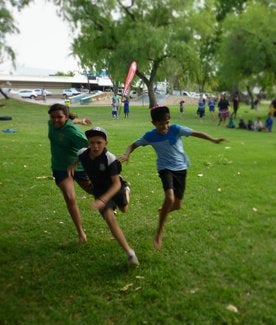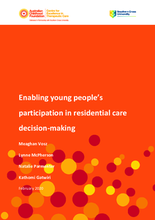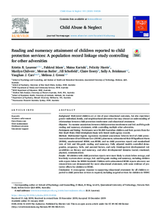

Displaying 191 - 200 of 653
This country care review includes the Concluding Observations of the Committee on the Rights of the Child.
This episode of Foreign Correspondent from ABC News in Australia exposes the "ugly truth" that donations and volunteer efforts of Westerners, including Australians, often drive an exploitative orphanage industry in developing countries (in this case, Nepal).
This article accompanies an episode of Foreign Correspondent from ABC News Australia entitled 'Paper Orphans.' It tells the story of Devi, a 10-year-old girl in Nepal "forced to pose as an orphan" who is being reunited with her family.
In this article journalist Mykeala Campanini explores why a majority of children in out-of-home care (OOHC) in Australia are struggling to reach national literacy and numeracy benchmarks, which puts them at risk of becoming disengaged with schooling, resulting in lifelong disadvantage.
UNICEF is seeking a consultant to conduct a review of the implementation of the 2018-2022 UNICEF Pacific Multi-Country Child Protection Programme, including achievements and challenges, before the programme continues to expand.
"The [South Australian] Department for Child Protection will spend millions shifting a program that provides support for kinship carers to the private sector, as part of a State Government push to better connect Aboriginal children in care with their culture," says this article from In Daily.
This brief addresses issues in young people’s participation in decision-making in residential care in Australia.
This practice paper focuses on improving cross-sectoral relationships between child protection and child and family welfare practitioners, who are often required to work together to keep children and families safe.
The purpose of this study was to examine associations between child protection involvement and 3rd- and 5th-grade reading and numeracy attainment, while controlling multiple other adversities.
This article provides a historical context and describes numerous provisions of the family group conference that protect participants and the proceedings. It then describes applications of FGC‐like approaches in the United States where practice models and policies—not laws—guide the implementation of such approaches.




